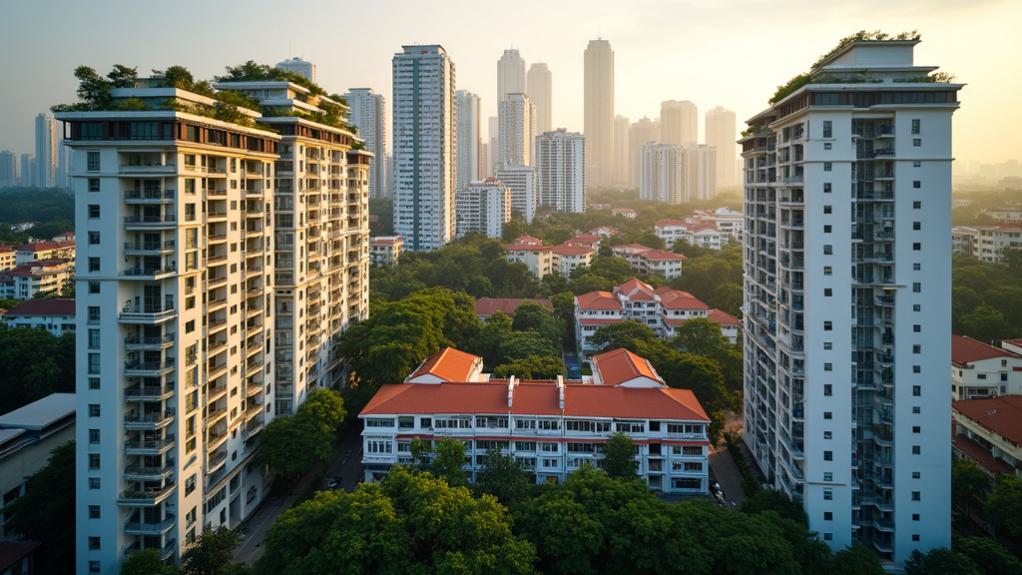The intricate process of property valuation in Singapore represents a cornerstone of the nation’s robust real estate market, encompassing multiple methodologies tailored to diverse property types and purposes. Professionals employ a range of techniques, with the Direct Comparison Method standing as the predominant approach for residential properties, wherein recent transactions of comparable units are analyzed with adjustments for factors such as timing, size, tenure, and condition. Property valuation is conducted by surveyors who estimate a property’s value as of a specific date.
For income-generating assets, valuers typically utilize the Income Method, calculating value as the Net Operating Income divided by the Capitalization Rate, a formula particularly relevant for investment properties with established rental streams.
The Residual Method plays a pivotal role in development site valuation, where land value is derived by subtracting construction costs, professional fees, and developer’s profit from the projected Gross Development Value. This calculation typically factors in a developer’s profit margin of approximately 10% and professional fees estimated at 7% of construction costs. For unique or specialized properties where rental data is scarce, professionals resort to alternative approaches such as the Contractor’s Test or Profits Method to establish reasonable valuations.
Market factors greatly influence property values, with economic indicators like interest rates and inflation directly impacting investor sentiment. Government policies, including cooling measures and loan restrictions, further shape the valuation landscape. Physical attributes—location, proximity to MRT stations and amenities, size, layout, age, condition, tenure, and design—constitute fundamental determinants of a property’s worth. The orientation and view quality can substantially affect perceived value, particularly in Singapore’s premium segments. Seasonal market fluctuations also impact valuation results, with Q2 and Q3 typically yielding higher valuations due to increased sales volumes.
Annual Value, determined by the Inland Revenue Authority of Singapore, serves as the basis for property tax calculations and represents the estimated annual rental income a property could generate. For development sites, IRAS typically sets the Annual Value at 5% of the estimated freehold market value. A comprehensive valuation report provides peace of mind for buyers and helps avoid pricing disputes during property negotiations. This all-encompassing system of valuation ensures that Singapore’s property market maintains transparency and stability, providing stakeholders with reliable metrics for investment, taxation, and development decisions.





